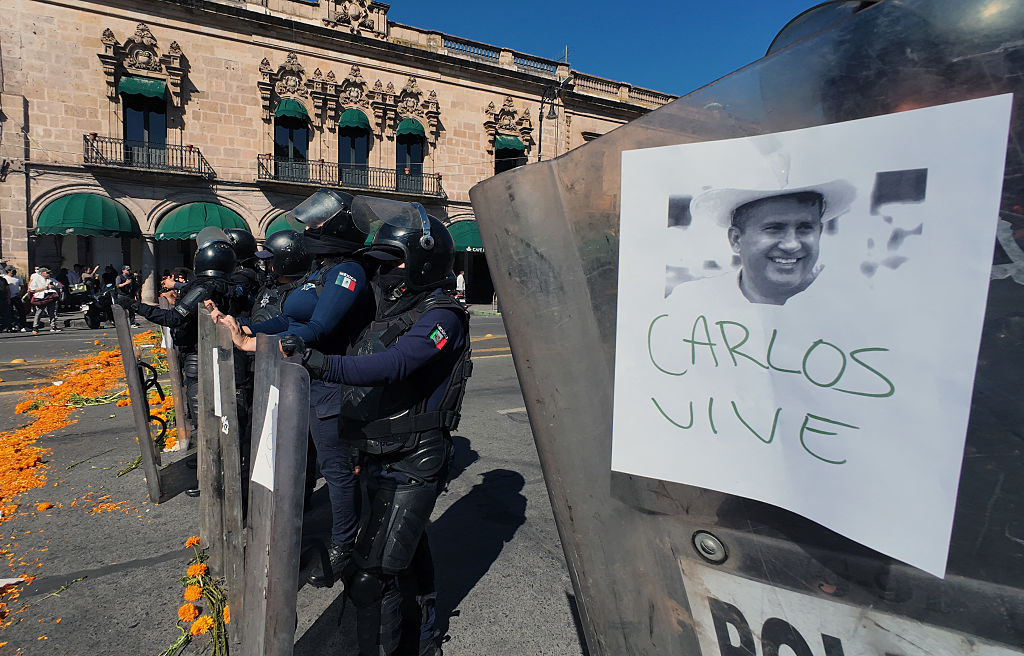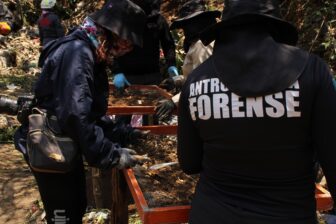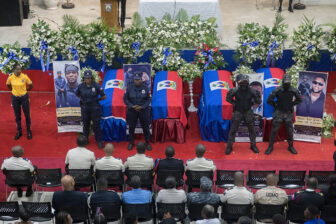MEXICO CITY – Mexico’s president, Claudia Sheinbaum, faces perhaps the most critical political-security challenge of her term: the explosion of violence in Michoacán, not as an isolated flare-up, but as a theater of systemic breakdown. In less than two weeks, a young charismatic leader of the lemon growers’ association was gunned down, and days after, a popular mayor of the town of Uruapan was assassinated, shot in broad daylight during Day of the Dead festivities on November 2.
Both men had sounded alarms about criminal groups’ deep entrenchment in agricultural supply chains, the extortion of lemon and avocado growers, and the failure of state and federal authorities to respond. Both were ignored. The assassinations triggered massive marches and demonstrations in Uruapan and the state capital, Morelia. What is unfolding in Michoacán is a time bomb. It signals the limits, weaknesses, and challenges of Sheinbaum’s strategy for Mexico’s ongoing security crisis.
Michoacán is more than one of Mexico’s “violent states”: it is a microcosm of the troubling trends that have shaped Mexico over the past two decades. A richly agricultural state—one of the key exporters of lemons and avocados to the United States—it has, since the mid-2000s, become the battleground for cartel territorial inroads, not just in drug trafficking but also in extortion, product control, and local governance capture.
Back in 2007, the then-leftist governor of Michoacán, Lázaro Cárdenas Batel (who today heads Sheinbaum’s Office of the Presidency), formally requested federal assistance from then-president Felipe Calderón, because the state was seeing the growing incursion of drug cartels and criminality. That request led to one of the first major federal police/military operations of Calderón’s term, and launched the opening salvo of what he called the “War on Drugs.” The state became a laboratory for a new model: heavy military use in internal security, in areas where cartels had made deep territorial inroads. But instead of reducing violence, it unleashed a wave of escalation.
Estimates and public data show the toll: under Calderón’s administration (2006-2012), the figures of murder and cartel-related executions soared. For example, in 2010 alone, there were 15,273 organized crime-related murders, up from 9,616 in 2009. Under Enrique Peña Nieto (2012-2018), the homicide count did not decline—in fact, the number of intentional homicide cases surpassed 104,000, compared with about 102,859 under Calderón. And under Andrés Manuel López Obrador, the numbers remain staggering: between 2019 and 2021, Mexico recorded some 109,059 murders.
These numbers matter because they reveal a simple truth: deploying soldiers and pursuing cartel “kingpins” has not produced peace. Instead, criminal organizations have fragmented, adapted, and expanded into economic control and extortion, and they now challenge the state not just in remote territories but in key productive sectors.
Yet another plan: Plan Michoacán
In Michoacán, the armed groups now behave less like underground trafficking rings and more like quasi-state actors. Multiple cartels—among them the Cártel Jalisco Nueva Generación (CJNG) and its allied or splinter networks such as “Los Blancos de Troya,” and the remnants of the La Familia Michoacana—have moved into extortion of agribusiness. Lemon growers and avocado producers describe being charged a “tax,” coerced into price collusion, and being told when to harvest, how to sell, or else face violence.
One of the distressing features of this crisis is the growing number of mayors, former mayors and local officials being assassinated. According to a comprehensive study carried out by the Justice in Mexico project covering 2000-2017, at least 150 such individuals had been killed in Mexico by 2017, with peaks of 20 mayors murdered in a year (2010) and an average of around 10 per year in earlier years. That rate reveals how mayors are targeted because their very office threatens criminal profits, territorial control, and extortion networks.
In Michoacán, the pattern is even starker: the region is one of the states most exposed to this kind of local political violence, precisely because it combines agricultural wealth, cartel presence, and weak local institutions. The murders of Bernardo Bravo and Carlos Manzo come less as exceptions than as nodes in a larger network of capture. For Sheinbaum’s presidency, the message is clear: if local officials cannot be protected, the state is hollowed out from below.
In the wake of these assassinations, President Sheinbaum publicly condemned the murder of Mayor Manzo as “vile,” convened her security cabinet, and pledged “zero impunity” and “full justice.” She also announced a new security drive for Michoacán: a “Plan Michoacán” which includes deployment of federal forces, coordination with state prosecutors, intelligence-sharing, and some institutional tweaks, along with more social programs.
But the substance of the plan so far is vague, under-budgeted, and suffers the contradiction that Sheinbaum’s own party, Morena, has governed Michoacán for the past four years, during which much of the problem has festered. Indeed, her initial reaction to the assassinations was to place the blame on the past and attribute the crisis to the legacy of Calderón’s “war on drugs” instead of acknowledging that Morena had governance responsibility for Michoacan’s escalating crisis. She denied that her strategy constitutes militarization, even as her own tactics continue to reflect the war-on-drugs template: heavy federal/military presence, state-centric security operations, and a focus on violence suppression rather than institutional reconstruction of civilian security forces.
Sheinbaum argues that increasing intelligence gathering and strengthening federal-state coordination, led by Security Secretary Omar García Harfuch, will help address the issue. She highlights that homicides have decreased nationwide. However, this masks a divide: while some areas, especially Mexico City, show progress, others—in states like Michoacán, Guerrero, Chiapas, Sinaloa—are becoming almost ungovernable, “no-man’s lands” where neither state nor federal authorities exert effective control.
At the heart of the matter is not just a reset in the government’s security strategy, but the political courage to break from the past. Sheinbaum’s test is not simply to deploy more troops, but to dismantle the networks of collusion that allow cartels to embed themselves as local power brokers: networks that often reach into her own party, state and local governments, and even the military. Without such a rupture, she will be trying the same strategy and expecting different results. As the old adage goes, that is the definition of madness.
A call to action
Sheinbaum’s window of opportunity lies here: she can announce the Plan Michoacán, but she must embed within it credibility: real institutional reform, transparent budgets, empowered local civilian policing protections for local leaders, suppression of extortion networks in agriculture, and accountability for collusion. As the past twenty years have proven, pursuing more militarized shadow governance will not work. She must allow civil society—farmers, growers, unions, citizen movements—to become partners rather than spectators. The seeds of resistance to criminal control are there. Whether they will grow depends on bold executive action.
Michoacán should be a wake-up call for Sheinbaum: the crisis is not just local; it is national; the stakes are not only security but also stability and the legitimacy of the Mexican state. In the midst of this domestic predicament, President Sheinbaum is even more exposed to pressure from President Donald Trump, whose increasingly aggressive stance toward drug-trafficking in Latin America means the U.S. will expect results from Mexico. If Michoacán falls further into cartel-guilded impunity, Mexico’s capacity to resist pressure for more U.S. intervention will weaken.
In short, Michoacán is where the map of failure intersects with a potential map of reform. The question is whether Sheinbaum will treat it as another crisis to contain or as the moment to redefine Mexico’s security and governance paradigm. The hour is late—and the demand is loud: justice, accountability, change. Less hugs, more action.









